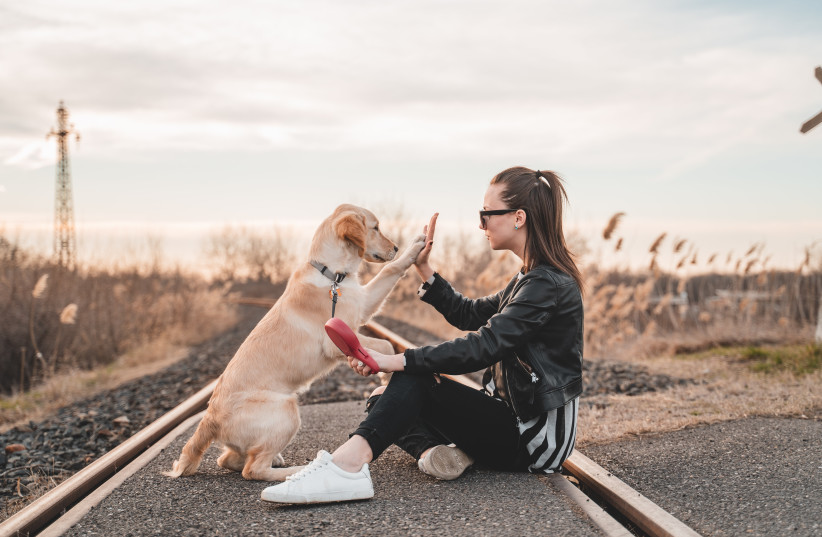Everyone who adopts a dog knows that it’s a huge love, one that is almost hard to contain. And those who read this health section know that the love that a dog gives is very good for the body and mind.
Mai and Moshe have a loving, supportive relationship yet one thing disturbs the harmonious balance: Mai's dog Ray, and that she kisses him on the mouth. We decided to check if Moshe was right, i.e. if it’s a horrible habit which harms May's health.
Our contestants were split into two: Dog owners who fully understand why May treats Ray as if he were her son, kissing and sleeping with him at night, and people who are less attached to dogs who understand Moshe's reluctance to these habits.
Is there a logical reason for Moshe's reluctance from May's physical closeness to her dog, and what happens to the body when we kiss a dog on its mouth or let it lick our face?
To start, the mouth of all living creatures is a gateway to the digestive system.
Its job is to start the digestive process of the food that dogs consume. It has saliva/mucus that helps start the process of breaking down food along with residues of food or other particles that enter the mouth. Dogs put everything into their mouths.
Throughout history, some civilizations believed that dog mucus had healing properties, in ancient Egypt for example dogs licked wounds to heal them. But this belief is only partially true. A large study from 2018 which examined the mucus composition of labradors and beagles found that it contained enzymes, anti-inflammatory substances, histamines that accelerate the immune response and other proteins that damage the various microbes.
But besides this, mucus also contains various bacteria and viruses that can seriously endanger us, such as rabies, salmonella and campylobacter, a bacteria which causes diarrhea. These bacteria are especially dangerous if bitten by a dog or you touch the feces, and it can pass through saliva as well.
The saliva of dogs contains various parasites (worms) which are transmitted when the animal licks fecal remains. Another health hazard is allergy. While most people think that allergies are caused by the dog's fur, in fact mucus and fur licking are the main causes of allergies.
But despite all of the above, we recommend that Moshe let go of his reluctance to dogs. Many studies show that dogs get along well with humans, at any age and in any situation.
Past studies have shown that kids who grow up with dogs and cats have higher emotional intelligence and are more compassionate compared to kids who never care for pets. One study even showed an improvement in the social skills of kids on the autism spectrum who care for pets. Another study from the University of Wisconsin that examined the effects of dogs on toddlers found that kids who had a dog at home when they were toddlers tended to develop far fewer allergies, atopic dermatitis and wheezing, compared to children who grew up without a dog.
The benefits of raising pets aren’t just for kids. Various studies have shown that tending to animals leads to lower blood pressure and heart rate, reduces the stress hormone cortisol and raises the levels of the hormone that causes a good feeling - serotonin. In recent years, the benefits of grooming animals for Alzheimer's patients have also been demonstrated.
A new study even found that just 10 minutes with a four-legged friend helped patients suffering from physical pain in the emergency room. Researchers in the current study concluded that "playing with dogs alone has been shown to raise oxytocin and dopamine, and create positive emotions."

